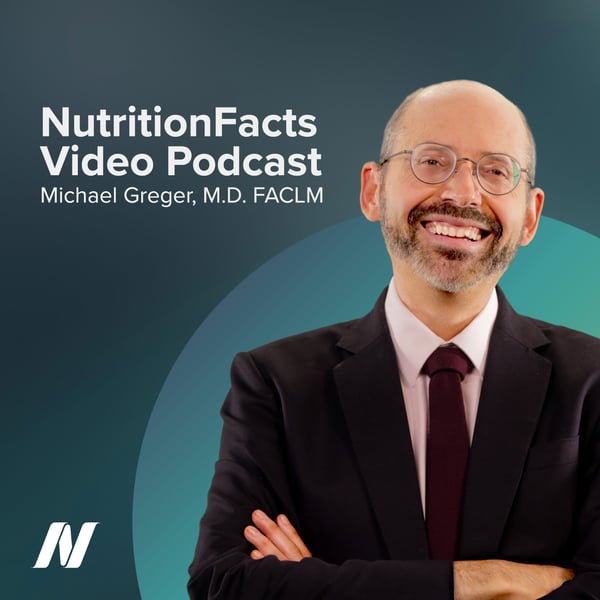The Enzyme mTOR as an Engine of Aging
NutritionFacts.org Video Podcast
[email protected]
4.8 • 877 Ratings
🗓️ 18 November 2024
⏱️ 4 minutes
🧾️ Download transcript
Summary
Transcript
Click on a timestamp to play from that location
| 0:00.0 | It sounds like science fiction. |
| 0:10.0 | Bacteria in a vial of dirt taken from a mysterious island create a compound that prolongs life. |
| 0:17.0 | And not just in the traditional medical sense, thanks to advances in modern medicine, |
| 0:21.1 | we're living longer lives, but we're doing so by lengthening the morbidity phase. |
| 0:26.8 | In other words, we're living longer but sicker lives. |
| 0:29.9 | Traditional medical approaches tend to just increase the number of old people in bad health. |
| 0:34.9 | Ideally, though, we'd extend lifespan by slowing aging. That way, we could |
| 0:40.5 | delay the onset of deterioration rather than just extend the period of deterioration. That's exactly |
| 0:48.3 | what this new compound appeared to do. Researchers called it rapamycin, named after the |
| 0:53.6 | bacteria's home, the mystical |
| 0:55.2 | Easter Island famed for its rock-carved figures, which is known locally as rapinewy. |
| 1:00.7 | Rapamycin inhibits an enzyme that's come to be known as mTOR, or mechanistic target of rapamycin, |
| 1:08.7 | a key modulator of aging characterized as a master determinant of lifespan |
| 1:14.1 | in aging. What does the enzyme mTOR actually do? It's the major regulator of growth in animals. |
| 1:21.6 | Activation of mTOR drives increases in both cell size and cell number. What's wrong with that? |
| 1:33.3 | The action of mTOR has been described as the engine of a speeding car without brakes. In this analogy, aging is a hurtling car that enters the low-speed zone of adulthood |
| 1:40.3 | and damages itself because it does not and cannot slow down. |
| 1:47.3 | We are over the hill and picking up speed. |
| 1:50.9 | Why don't living organisms have breaks? |
| 1:53.2 | Because they've never needed them. |
| 1:57.4 | In the wild, animals often don't live long enough to experience aging. |
| 2:03.1 | Most animals die before they even reach adulthood. The same used to be true for humans. Due to early age mortality, in the 17th century, most Londoners didn't even |
... |
Please login to see the full transcript.
Disclaimer: The podcast and artwork embedded on this page are from [email protected], and are the property of its owner and not affiliated with or endorsed by Tapesearch.
Generated transcripts are the property of [email protected] and are distributed freely under the Fair Use doctrine. Transcripts generated by Tapesearch are not guaranteed to be accurate.
Copyright © Tapesearch 2025.

